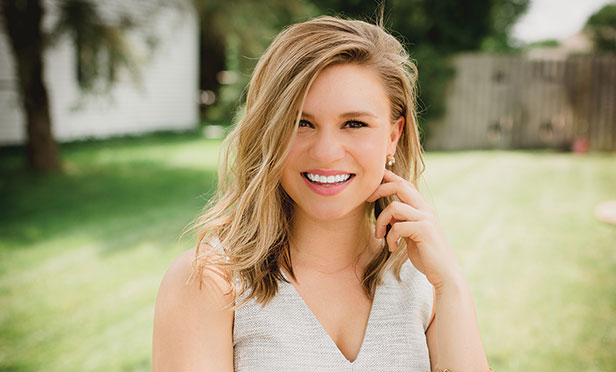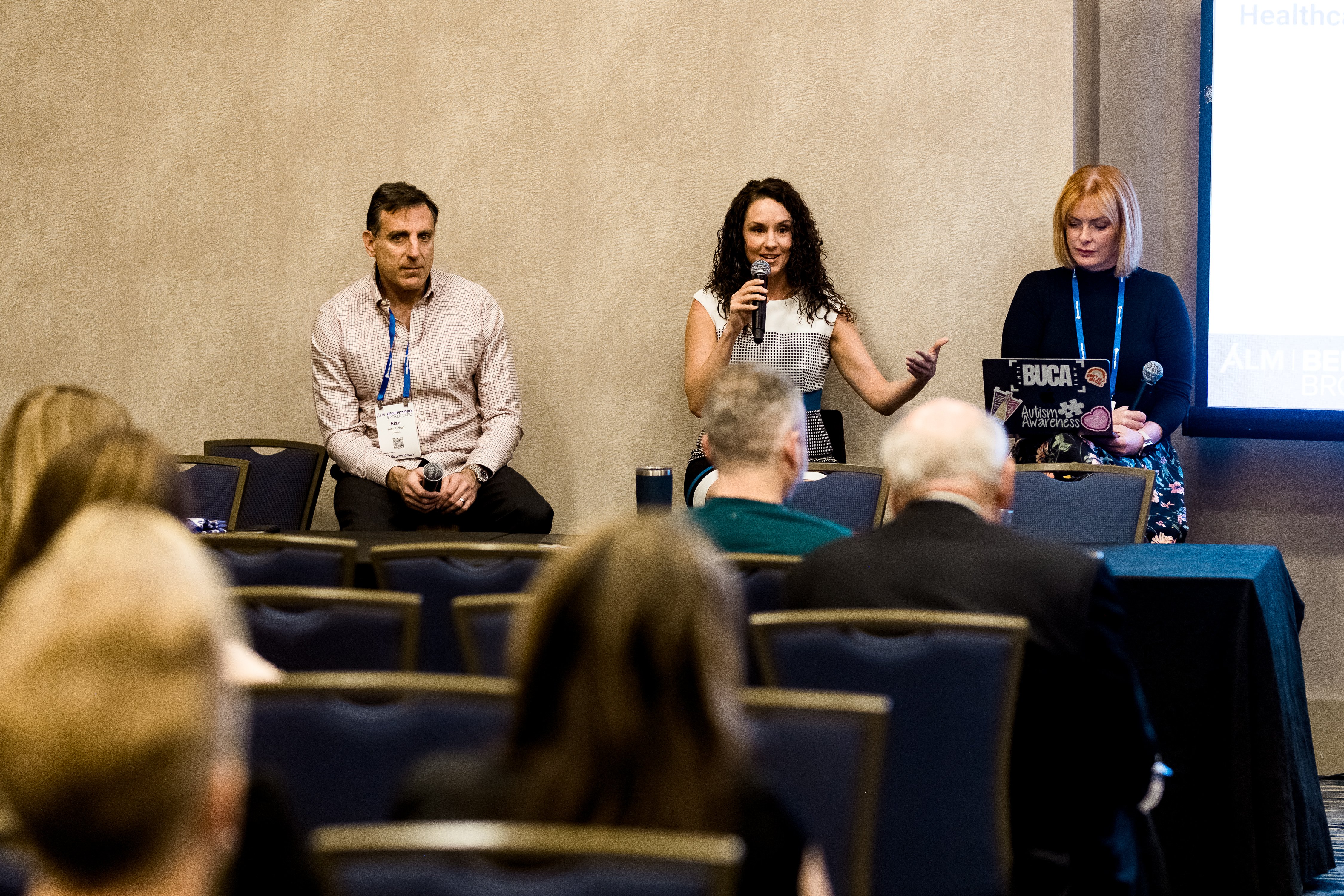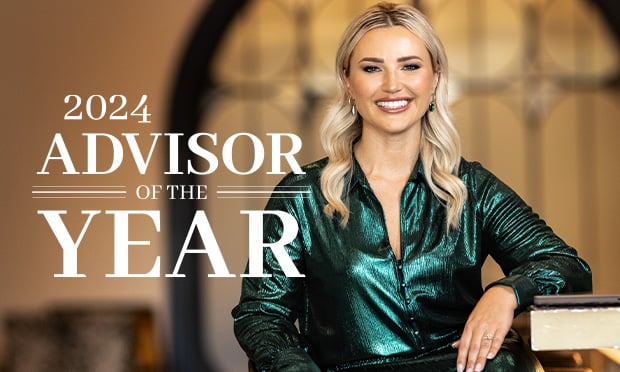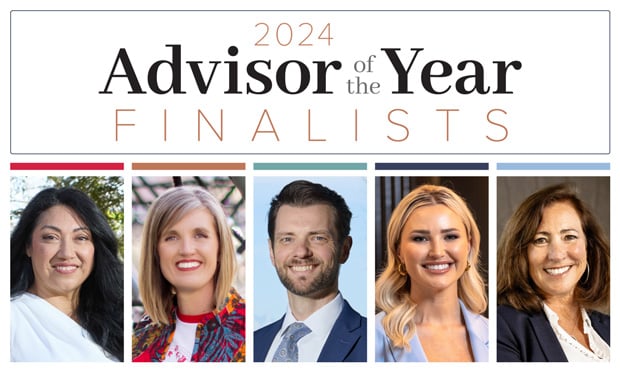 Jessica Du Bois isa benefits consultant at Business Benefits Group, located in the D.C.metro region. She focuses on personalizing the employee education experience to enhance theease of use and understanding of employee benefits.
Jessica Du Bois isa benefits consultant at Business Benefits Group, located in the D.C.metro region. She focuses on personalizing the employee education experience to enhance theease of use and understanding of employee benefits.
Paul Wilson: How did you get started in the benefitsindustry?
|I'm from a very small Iowa town of about 800 people. During highschool and college, I had jobs where I saw that if you work hardand build relationships with people, you will make more money. So Iset out to do that but in a way that would move me out of thestate.
|I ended up with Principal Financial Group as a salesrepresentative. I took part in their development program for newgrads, and this led me to Nashville. During those years, I workedthe Tennessee, Alabama and Kentucky markets.
|I connected with Business Benefits Group (BBG) through a mutualconnection in Nashville. I wasn't sure at the time that I wanted tostay in the industry, but when I met with them, it gave me adifferent view on what the industry could look like. I didn'trealize how innovative benefits has become. The market I wasworking in was so outdated, people were still enrolling using paperapplications and the number of carriers was very limited. Talkingto BBG, I saw a lot of opportunity. So I packed up all my thingsand moved to D.C.
|PW: What helped reinvigorate you about theindustry?
|People are always talking about customer service as adifferentiator. At BBG, that's non-negotiable; it's not evensomething we have to talk about. We work extremely quickly and in acollaborative manner. We're always looking at ways to improveknowledge, processes and services. And I felt like theyacknowledged the ideas I brought from day one and were trying tofigure out how to implement some of them and see where they'd fitin the overall strategy. We're constantly learning about what'savailable out there.
|PW: How has your journey so far helped shape yourmindset as a broker?
|Working in rural areas, I was holding enrollment meetingseverywhere from poultry processing plants to auto shops, often inthe middle of nowhere. To create a competitive advantage, I was theperson who would meet with the employer, conduct enrollmentmeetings, collect applications and then help with the servicing onthe back end. So I got to go through every step with the employeesand figure out, “OK, what does this mean to your family? How do weprotect you if something goes wrong?” And then have conversationswith the employer, show them how important benefits are and explainways they can differentiate.
|Caring about people and seeing what they go through on a dailybasis is something I bring to work every day. I feel like that'ssomething that's been lost in the industry. In many cases, we'vestopped focusing on what these benefits truly mean toemployees.
|PW: What are the biggest challenges and successes you'reexperiencing?
|One of the biggest challenges is just trying to understandeverything that's coming our way, from all the new vendors knockingon our door every day to keeping up on new strategies and all therisks and opportunities that come with them.
|I'm very excited about what we do, so I tend to always look atthe opportunities that come from these challenges.
|PW: Any predictions on what will happen withsingle-payer?
|Every time something changes, it creates opportunity. If it wereto happen, it's just another reason to move from commission toconsulting fees, which is where we're already heading.
|My focus has been on the employee experience and bringing theculture part of the conversation to benefits. Even if a drasticchange did happen in health care, I'm still useful because thethings I'm providing are much more than just health care.Everything from mental health to technology to educating employeesto improving onboard and offboarding. I'm talking about it all.
|PW: What areas of the industry are you especiallypassionate about?
|I love to make complicated things easier to understand, whetherat an open enrollment meeting or within the health care planitself. I recently wrote a piece about artificial intelligence.There are so many great applications out there that help make theemployees' experience better as they navigate through the system. Ifeel like that's where the industry is moving and as more youngerbrokers come into the field, that will impact not only the cost ofcare but also the way people feel and function at work.
PW: What are your favorite things about yourjob?
|There's so much opportunity. In particular, there's been such alack of conversation when it comes talking about employees andtheir experience. All day, I'm thinking about material I can createor conversations I can have with prospects or the groups I workwith. Companies are starting to realize in order to be here for thelong run, you have to provide purpose for your employees. That'ssomething I'm trying to help them with.
|The companies I want to work with are the ones who truly careabout what all this money is doing for their employees.
|PW: How important has collaboration been to yourcareer?
|We collaborate a lot within our office, but we do it a lotoutside of the company as well. Podcasts are also huge; we use themto learn and share information and we also reach out to people wehear to ask questions or discuss what we're seeing and hearing.It's never been easier to share information and content.
|We're all trying to change the health care industry for thebetter, and more people are realizing that the best way to do thatis through employers. It can't just be a couple of brokers; inorder to truly make an impact, we all need to do it.
|PW: How can the industry attract and support youngadvisors?
|I think it's important to focus on purpose rather than income.I've had multiple people within the industry tell me how much moneycan be made; that's not something I care about, and it's notsomething I think a lot of younger consultants care about. We seethe huge opportunity our industry has compared to where it is now;that's what we care about.
|PW: I know many advisors are focusing on the C-Suite.How does that fit in with your HR relationships?
|When it comes to financials and the health care strategies, youwant to talk with the CFO. However, if that's the only place wefocus, we're missing why we have health care in the first place andwhy we offer benefits. If your only focus is saving them $200,000 ayear, then you're missing the fact it's one of the biggest factorsin why an employee chooses a company, or what keeps thememotionally, physically and financially healthy.
|If you get in the door with HR, you'll often have theopportunity to talk with the CFO, as well.
|PW: What does the word 'disruption' mean toyou?
|Complete transparency, with everyone's cards on the table. Thatincludes employers knowing how brokers are paid, which is somethingwe talk about in our first meeting. One of our big goals for 2019is figuring out how to be even more transparent, looking at ideaslike tying our compensation to results, for example.
|For employees, it means knowing how much their care costs andhow to more easily find the right providers.
|I think it's also starting to happen on the physician side. Mymother lives in Iowa and recruits physicians for a hospitalnetwork, and she is a big part of the conversation aroundphysicians being paid by how many patients they see versus gettinga salary. The network my mom works for is transitioning to thesalary model for physicians so there isn't the pressure to see moreand more people every day. We're seeing some positive changes.
|PW: Finish this sentence: The key to success in thisindustry going forward is…
|Evolving.
|Read more from our Face of Changeseries:
- Bravery and trust: A Q&A with EmmaPasse
- Change is constant: A Q&A with Naama O.Pozniak
- Always moving forward: A Q&A with LauraFrances
|
Complete your profile to continue reading and get FREE access to BenefitsPRO, part of your ALM digital membership.
Your access to unlimited BenefitsPRO content isn’t changing.
Once you are an ALM digital member, you’ll receive:
- Critical BenefitsPRO information including cutting edge post-reform success strategies, access to educational webcasts and videos, resources from industry leaders, and informative Newsletters.
- Exclusive discounts on ALM, BenefitsPRO magazine and BenefitsPRO.com events
- Access to other award-winning ALM websites including ThinkAdvisor.com and Law.com
Already have an account? Sign In
© 2024 ALM Global, LLC, All Rights Reserved. Request academic re-use from www.copyright.com. All other uses, submit a request to [email protected]. For more information visit Asset & Logo Licensing.








